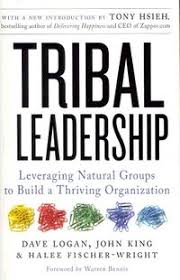Core Values
The Secret Code of the Group

Creating buy-in more often that not comes down to awareness. If you’re unsure of where the team’s culture stands, albeit toxic or cohesive, the language and core values the team abides by will tell you. They may not have deliberately sat down and set up these core values, but they are there and they are different in every group.
A lot of what we discuss here is about the group coming together as a whole. There is strength in numbers and that is something that has played itself out successfully time and time again. In every successful group there are a list of rules, guidelines, or core values that the group molds itself after. While these rules may change as new personalities come and go it’s up to you, the leader, to find out what they are, uphold them, and guide them. They are there in everything the team does. How it gathers, how it talks, how it thinks, and certainly in its acceptance of someone new. Imagine this unseen code that is constantly running as a program for your team. Almost as if it were that green code in the Matrix. Is that code corrupt? Is it good but there are bugs?
These little rules that the team unknowingly abides by can be hurting buy-in. It’s our job to figure out what they are.
“A single twig breaks but the bundle of twigs is strong”
– Tecumseh

Core Values - Time to Dig
First, what are core values? They are values that explicitly define the culture of the group, what is finds important, and are its own unwritten rules for success. What we need to do now is, much like a miner, dig these out. First of all, we should be meeting with our teammates individually on a consistent basis. If we’re not, then we’re missing a valuable component of the buy-in process. More on that in another article to come. As a result of these meetings we can start to dig out some of these unwritten codes or rules. How? Well, to be honest, the team knows the answers to everything you need, so, ask. Also it is our job to ask them. Does asking questions like this and admitting not knowing something feel awkward? If it does you should probably check out this article.
Warning!
These steps can NOT be taken without building rapport with these individuals FIRST! In contrast to having built strong rapport, your responses will be bland and not real. Similarly, if a manager of yours asked you deep questions about the team but they barely knew your name, how truthful would you be?
What we’ll do here is ask each individual: “If you were to say there were three unwritten rules or values that this team abides by, what would they be? Maybe even three rules or values that the most successful participants of this team abide by, without having to be told. Therefore, these values are just part of what we do, to be good at what we do.”
IF YOU'RE NOT READING, YOU'RE BEHIND
 The answers here will come from all different places, shapes and sizes, but let them interpret the question however they want. This is your time to make mental notes of the people who possibly go off the rails. Are they bought in? Detractors? Not seeing the big picture? Or are they giving REALLY good input and their opinions on the culture and team need to be valued going forward? Does this person see the larger picture and have a bright future ahead of them? Certainly valuable things to make note of.
The answers here will come from all different places, shapes and sizes, but let them interpret the question however they want. This is your time to make mental notes of the people who possibly go off the rails. Are they bought in? Detractors? Not seeing the big picture? Or are they giving REALLY good input and their opinions on the culture and team need to be valued going forward? Does this person see the larger picture and have a bright future ahead of them? Certainly valuable things to make note of.
Listen to them
Language is a huge component when evaluating the strength of the culture. Above all, listening and awareness of these signals is our job as builders of that culture and developers of the team. Everything you hear from the team on this topic will give you an idea of where the culture is and what is being valued. For a great description on these concepts check out Tribal Leadership. In that they go in depth into how important it is to hear what the team says, and how to use that to evaluate how strong the culture is.

Tell Everyone!
Now that we have EVERYONE’S input, we can pull it all together in a list. Depending on the size of your team you will have quite a list. The first time we did this we had 90 responses. Now in your staff meeting, list them all out and show each and every person what this team values. The fact that the list is so long is actually quite impactful. Let them know that you’re going to take the list and sort out which ones repeat the most and that will be your team’s core values. Mention to them that this is THEM speaking. That they own this. Therefore, they chose this as their own creed.
Once you’ve truncated your list you now have about 5 to 6 (maybe more?) values that have been repeated the most. By your team. Your job is not over now. Your job is to come down from “mount buy-in”, preach these new rules, inject them into the culture and make sure they’re upholding their end of the bargain. Post it in break rooms, put it in emails and preach it to new hires who didn’t have input. Hence, your job is to constantly remind them that this is us and no one else.
Conclusion
Now that you have this it is critical you live by this. In everything the team does, in every hire you make, in every policy you enforce, in every employee you terminate or player you cut, you MUST act by these rules. This is what the team wants and if we’ve learned anything on this site it is that it is our job to fight for what they want.



